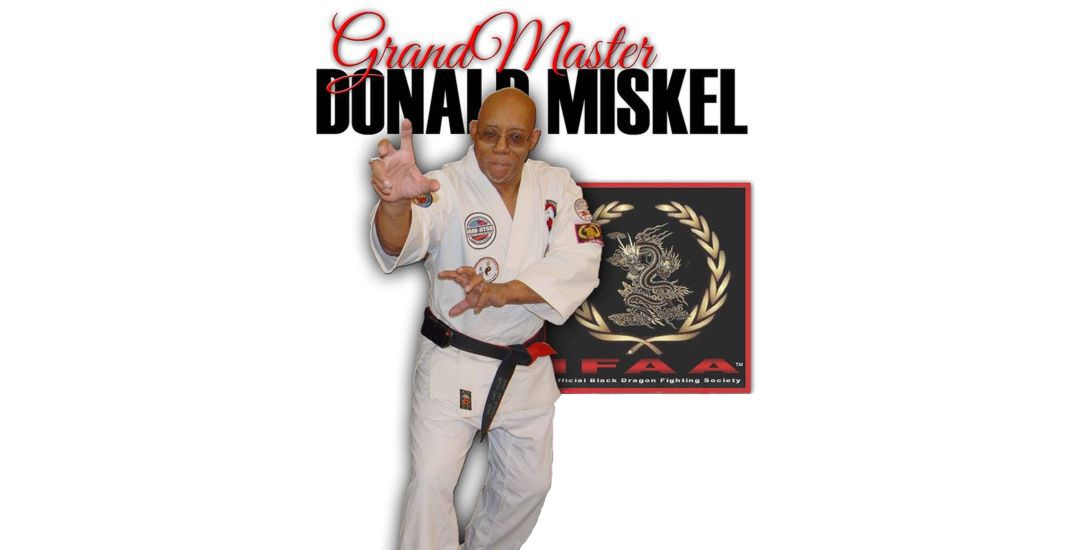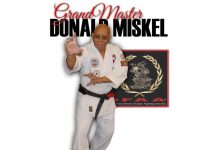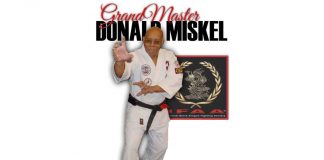In all honesty, I might not be the one to write this particular study. I actually feel hypocritical in doing so. I am not a good loser. I’m almost obsessed with winning. Patience has not proved to be my long suit.
Drawing on my psych training, I can draw conclusions, and see patterns and correlations in this obsession. I can discern all kinds of psychological implications from my obsessive nature. I’ve said it in the past and I won’t say any different now, I have an obsessive personality. I hate being late for anything. I’ll arrive an hour early to avoid being late. Once I start something, I become fanatical about finishing it as quickly as possible. I hate loose ends. I want every situation in my life to come to a conclusion, sooner, rather than later.
On occasion, this obsessive personality has served me well. I gobble up knowledge and information like a glutton. Not knowing anything, I have more useless information in my head, than anyone I know. Inevitably, just by the law of averages, the occasional tidbit of useful information squeezes its way through.
I have earned more Black Belts in more arts than most of the instructors I’ve had the privilege of knowing. I usually earn them in record time because I’ll train until I drop.
I have a hard time taking classes that require me to sit in a class room. I would have read all of the books a few weeks into the class and I’ll want to test out and go on to the next class. Unfortunately, most schools won’t let you do that. That’s why I take courses online, so that I can go at my own pace, which is usually at a break neck pace. The only reason I’m allowed to do that is because I test well, and I have a fairly decent retention level. It is in no way because of superior intelligence, though, I rather wish it were. You can see, from all of this, that I am driven. If I had the smarts to go with my enthusiasm, I’d be a force to be reckoned with.
Enough of that. Let me get back on track. I would like to examine failure as a learning tool. I use myself as an example because I make the perfect candidate. I make more mistakes than most. I believe that we learn more from our failures than from our successes. In the martial arts, you may not know immediately if you’re doing something wrong. Kata and waza aren’t self correcting. Putting your skills to the test often is. Do a technique wrong, and you’ll often pay for it forth with. Lumps, bumps, bruises and broken digits tend to show you ‘the errs of your ways’ pretty decisively. I know this for a fact. I’ve experienced learning the hard way, primarily because of my own interpretation of techniques independent of what is being taught.
I was like Peter in my martial arts classes. You know how the Apostle Peter was. In the formative days of his ministry, he was impulsive, opinionated and head strong. That was me. I have to admit, in some ways it still is. I jumped head on into the study of any given technique, outstripping my class in my efforts, often to my detriment.
The school that I studied karate in was in an upper middle class neighborhood. I, on the other hand, was from the inner city, what we called the ghetto, back in the day. My approach to any technique was direct and brutal; long on strength, short on control. No-one wanted to work out with me because of that, and wisely so. That meant that I had to work out with our sensei. By default, I became his uke. That proved a mixed blessing. I learned more, but I learned most it the hard way. Being my sensei’s uke was not only a mixed blessing, but a painful one.
The type of Karate that we studied, technically, Shorei Goju Karate, was taught hard and brutally. We were the original ‘Cobra Kai’ school (from the ‘Karate Kid’ movie). My propensity for aggression often meant that my Sensei was less than gentle with me. That gave me plenty of opportunities to learn some hard and painful lessons. Going to and from (public) school, I limped so much that most of the other students thought that I was lame in one leg or the other.
I didn’t do well in kata training and more often than not my basics were sloppy, but it was in kumite that I shined. I was a terror when it came to sparring. You have to remember, that this was Chicago in the mid sixties. The school that I belonged too was a part of the old World Karate Federation, the infamous Count Dante’s organization. If you are up on your U.S. martial arts history, you will remember that Count Dante, or rather John Keehan, held the first full contact karate tournaments in the United States. Full contact was nothing new to the students in our organization. We practiced it in class and in interschool tournaments well before they were introduced to the public. Our students stayed hurt and injured and few of us sported a full mouth of teeth. Our schools were known for their brutality.
Keeping with the brutality of this way of teaching, no protective equipment was allowed, not even groin cups. That isn’t as unusual as it may sound. In the classical Karate schools in Okinawa and Japan, the same tenant was often followed. In our school, everything was allowed except kicks to the knees, eye gouging or joint destruction techniques, probably because the resulting absences would interfere with our training. All of those techniques were taught to us but we weren’t allowed to use them while sparring. We were taught the most brutal fighting techniques imaginable, but we weren’t allowed to use them in class (thank God). As many times as I was kicked in the groin, it’s amazing that I was able to father children. Apparently, my virility wasn’t affected. I’ve fathered a fair number of offspring. The point is, through this inadvisable manner of training, I ended up developing an iron clad ability of avoiding groin kicks, which, by the way, came in handy in the mean streets of Chicago, where groin kicks had developed into an art form.
I had more than a few opportunities to learn whether or not my techniques worked in the streets. In the neighborhood I lived in, one of the toughest in Chicago, physical prowess didn’t remain theoretical. You were seldom left wondering about your ability. I wasn’t able to implement all of the techniques I learned in class. Some didn’t translate well into the streets, and some, I was unable to make work for me. I learned as much in the streets as I did in class. I had been an accomplished street fighter before I had begun studying the arts and I didn’t need martial arts to be able to fight. Even so, what I learned in class augmented my ability. Actually, the more I learned, the less I wanted to engage in street fighting. Unfortunately, my peers saw no reason to recognize my new found passivity. I had more opportunities than ever, to test my physical prowess.
More often than not you weren’t given equal odds on the streets. If caught out alone, it wasn’t unusual to be confronted by more than one assailant. Even with my expertise in the arts (such as it was), I often found the odds insurmountable. I found out that I didn’t share Bruce Lee’s ability to take on twenty assailants at one time. More times than I care to remember, I was on the receiving end of a, well manned, butt whipping. I won’t say that I enjoyed these experiences, but they served to compliment my training. I remember being stomped by an especially skillful street combatant (stomping was common practice if you lost your footing in a fight). Even in my anguish, I noticed that he added an affective twist at the end of each stomp. I had to admire his technique, even If I protested whom he had chosen to display it on. I purposed in my martial arts oriented heart that, if I survived that particular lesson, I would add that refinement to my own stomping technique.
That may sound funny, in retrospect, though I failed to see the humor at the time, but it was things like that that taught me how to fine tune my skills. As I’ve stated, I didn’t really need martial arts to be an affective fighter. I developed those skills early. You had to in my neighborhood. Because I was athletic, and a quick study, I was one of the toughest guys on the block. I figured that, I was the reason that Karate had been invented.
Every situation isn’t a good one, but every experience, whether good or bad, offers opportunities to learn. I won’t lie, pain hurts, but it is an uncompromising teacher. It may not be the tutor that you’d choose, if given a choice, but it can’t be denied; it hammers its lessons home with rare efficiency. We learn from our mistakes, or we should. If we can stop moaning, groaning and complaining, and wipe away the tears that obscure our vision, we can learn the lessons that these painful experiences have to teach us.
For the Christian, the Christian martial artist, in this case,” all things work together for the good… (Rom. 8:28). Even our mistakes, and our, most painfully bad decisions are just waiting to teach us valuable lessons. We need only listen, and open up our hearts and minds to the lessons that life has to teach us. The trick is, not to take too many, unnecessary trips and falls. Learn from your mistakes, but don’t make too many foolish missteps. There’s no guarantee that you’ll survive them all. You can also learn from the mistakes and misfortunes of others. Be wise and learn from what you see and experience.
As Christians, we realize that we will go through many tests and trials. God uses these to hone us into sharp weapons in his arsenal of spiritual warfare. These experiences aren’t pleasant but they are designed to teach us something. Likewise, we go through many tough phases in our training. Many students get discouraged and give up, but those who stick to their guns, are honed into fine martial artists. There are a few naturals in any school, but they don’t always develop into the best martial artists. As often as not, the best technician is the one who finds his way to his skill and ability, through his mistakes and missteps. He may learn the hard way, but what he learns, he learns well.
In life, you’ll make some mistakes and bad decisions. Sometimes they’ll cast you broken and bruised into the gutter. These things happen in this world. If anyone ever promised you a rose garden, I am willing to bet, that by now, you’ve figured out that they lied to you. Life isn’t easy. Sometimes it’s down right hard. God didn’t promise us an easy time. He did promise that he’d be with us in those tough times. David said in the twenty third Psalm, “Yea though I walk through the valley of the shadow of death, I will fear no evil, for thou art with me. Thy rod and thy staff, they comfort me…”
You’ll make a thousand mistakes and they’ll cost you in humiliation and pain, but learn from your failure.
Your studies won’t always be easy, but if you stick with them they’ll be rewarding. Sometimes they may be fun, but many times, you will learn through your blood, sweat and tears. I won’t say that it will always be pleasant. You’ll make a thousand mistakes and they’ll cost you in humiliation and pain, but learn from your failure. Remember, “What doesn’t kill you, makes you stronger”. It won’t always be fun, but if you persevere, you will prevail, whatever the challenge may be. This isn’t only a lesson to be learned for the dojo, it is a lesson for life. Be like that pit bull, fighting a German shepherd. Yeah, he’s bigger, and he looks formidable, but don’t throw in the towel before the fight starts. Grab hold, widen your stance, and hang on. It’ll be a rough ride, but if you don’t give up, I guarantee, it will take you to where you want to go. Persevere, my friend. Keep trying, and you’ll reach that distant goal.
God bless you my martial arts brethren. Study Hard, and go with God.
Dr. Donald Miskel






